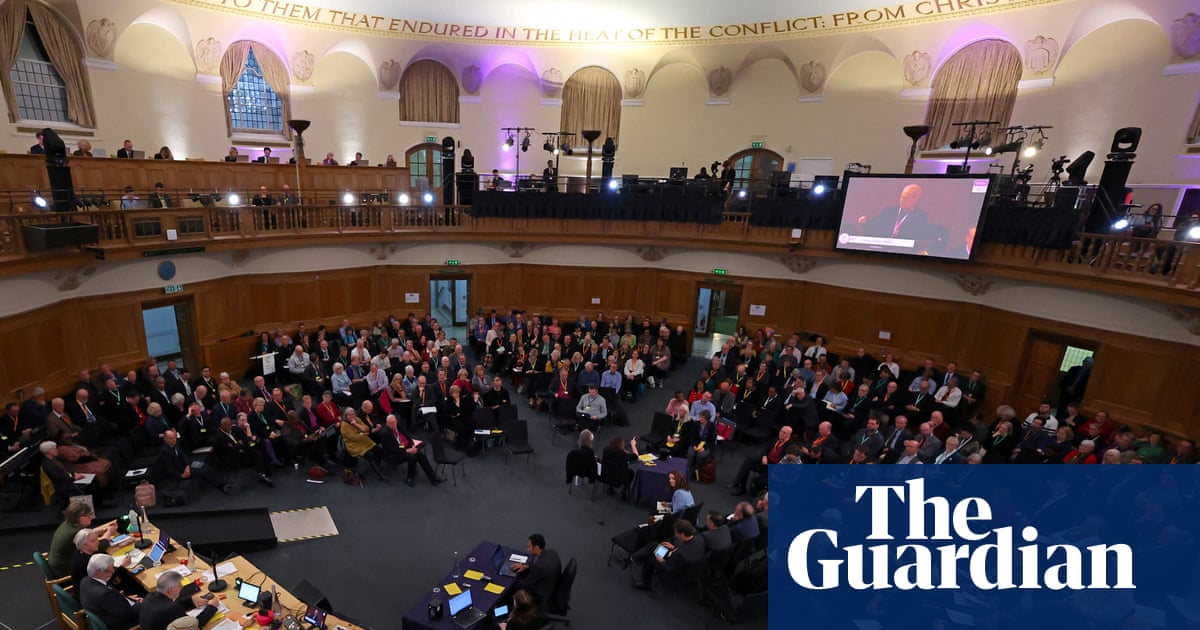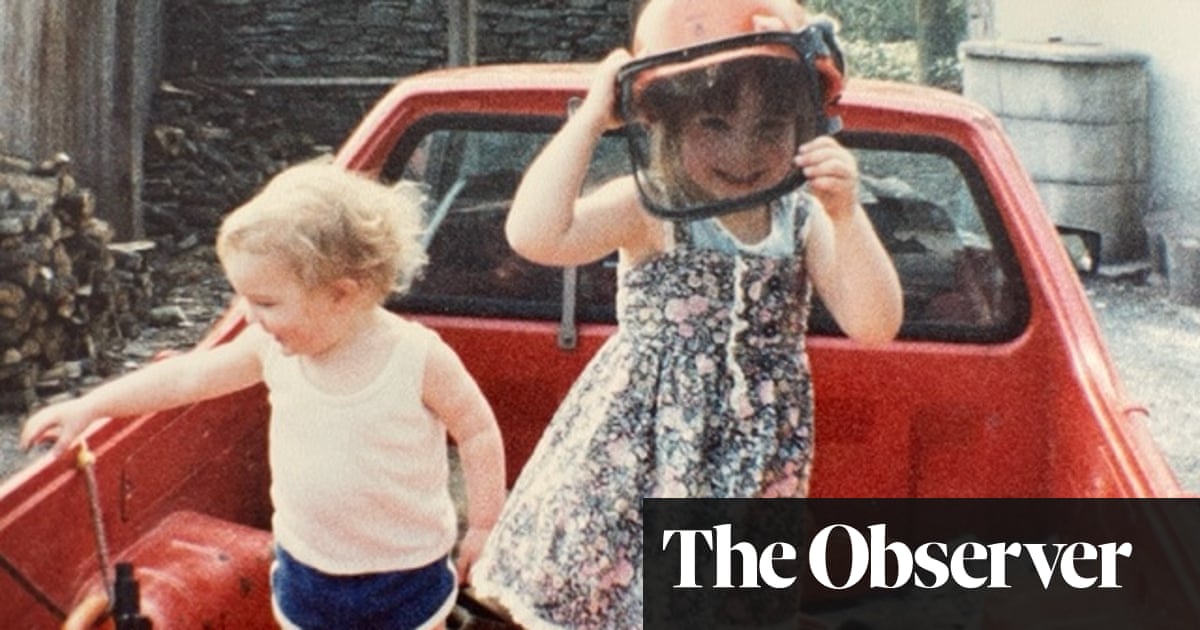
first heard Black Sabbath’s second album during the part of my childhood when I was most susceptible to its charms. As a quiet, earnest Catholic school kid – the kind that excitedly whispers “I’m clean!” to themselves after their first confession – it’s not all that surprising that I eventually got bullied. The boys called me names, pushed me into lockers, and dug their pens and markers into my clothes, as if to tell the rest of the pack: “He will let you do this!”
I’ve never felt more alone than when I was walking those halls, my white dress shirt littered with streaks of black and red ink. It seemed like all I had was my Walkman, which I would blast at top volume, searching for understanding. I found it all over Paranoid, an album that stuck up for the downtrodden while spinning ominous hooks into delirious, rampaging jams. I didn’t know that I was listening to the band that introduced this specific form of hard rock alchemy to the mainstream. I just knew that it made me feel better.
As we reach the 50th anniversary of Paranoid’s release this Friday, we have the benefit of looking at the album without the contextual noise of its original, occult-focused media narrative. (“Black Sabbath win struggle against black magic tag,” went the headline to a 1970 NME feature.) We can trace the origins of its eight songs not to some altar in the middle of the woods, but to the streets of Birmingham in the 1950s and 60s and see how the band’s signature sound was, in part, the unintended result of its need to circumnavigate physical and psychological pain. And we can marvel at how effective it could be at helping listeners do the same.
Geezer Butler, Sabbath’s bassist and main lyricist, may have had the most fully formed political opinions of the group, but they all understood what it meant to struggle, growing up in postwar Birmingham, a city haunted by the aftermath of 77 Nazi air strikes that killed more than 2,000 people. Vocalist Ozzy Osbourne grew up with undiagnosed dyslexia and ADHD in a row house with no toilet, wandering through the ruins of bombed-out homes, dropping out of school at 15. Guitarist Tony Iommi also dropped out at 15, only to cut off the tips of two fingers on his last day of a welding job, forever altering the way he played. Butler grew up in a strict Catholic household and “didn’t realise that people had hot water” in other neighbourhoods. Drummer Bill Ward learned his craft at a young age because the guy who set up a kit at his parents’ house parties was often too drunk to break it down at the end of the night.
“In those days, the working person’s mentality went like this,” shared Osbourne in his 2010 memoir I Am Ozzy. “You got what little education you could, you found an apprenticeship, they gave you a shit job, and then you took pride in it even though it was a shit job. And then you did that same shit job for the rest of your life. Your shit job was everything.”
These Dickensian realities shaped Sabbath’s sound in ways that would make them notably different than the hundreds of other bands melding blues and psychedelia in 1970. Perhaps the most famous moment of Paranoid can be traced back to Tony Iommi’s workplace catastrophe. He achieved his uniquely deep guitar sound by tuning the instrument down a half-step, which made the strings looser and therefore easier on his injured fingers. (Iommi further blunted the pain by wearing form-fitted “thimbles” made out of melted plastic.) Hence, we get the groaning siren of doom that is the opening note-bend to Iron Man – a fascinatingly economical bit of mood-setting that communicates a sense of dread more effectively than a thousand arpeggios.
While Iommi was transcending his physical disadvantages, Butler was exploring his capacity for empathy, tapping into his struggles with depression and outrage at the events in Vietnam. So while Led Zeppelin were promising to give you every inch of their love, Sabbath were recording songs such as Hand of Doom, about soldiers who turn to heroin as a way to cope with their PTSD.
“I was fed up listening to every band and singer singing about falling in love or breaking up,” Butler tells me over email. “I wanted a more meaningful, realistic, working-class point of view in my lyrics.”
Butler was no Bob Dylan, but his contributions were essential to giving Sabbath a purpose beyond sounding dangerous. When Ozzy took over the writing duties for the closing psych-blues rager Fairies Wear Boots, their lack of purpose is noticeable – depending on who you ask, the track is either a recounting of a bad trip or a tale of a street fight with homophobic undertones. (I believe the former because of that last verse about “smokin’ and trippin’”, but perhaps that’s wishful thinking.)
Butler’s lyrics were practical, blunt instruments that created space for Osbourne and Iommi to take flight. And they made it OK for hard rock and metal songs to have a conscience – for Iron Maiden to sing about the ethnic cleansing of Native Americans; for Metallica to empathise with a mortally wounded soldier; for Nine Inch Nails, Alice in Chains, Korn, Pallbearer and countless others to wrestle openly with depression. Without Geezer, that music blaring through my Walkman would not have been as sympathetic.
“It’s easy to fall into depression when you are not sure what direction your life will take, or what your purpose is in life,” Butler shares. “I left school just before my 16th birthday without having a clue what I would do with the rest of my life, which was an overwhelmingly daunting situation.”
Iron Man is a prime example of Butler’s compassion for the lost and directionless. On the surface, it’s a simple sci-fi tale about a being travelling back in time to warn the world of the dangers to come, only to be spurned like so many climate scientists. But it’s all a thinly veiled metaphor for a lonely kid, described from the perspective of his bullies:
Is he alive or dead?
Has he thoughts within his head?
We’ll just pass him there
Why should we even care?
When challenged by producer Rodger Bain to churn out a shorter number to fill out one of Paranoid’s sides, Butler allowed some even deeper vulnerabilities to spill on to the page, on what would become the title track:
All day long I think of things, but nothing seems to satisfy
Think I’ll lose my mind if I don’t find something to pacify
Can you help me occupy my brain?
Osbourne sang these words with singular focus, like he was trying his best to ward off an enchantment. Paired with Iommi’s catchy blues-pop riff, this dichotomy of pleasure and pain proved irresistible to the public. Paranoid remains Black Sabbath’s biggest hit. They played it on Top of the Pops, it paved the way for their first US tour, and it inspired many to purchase an album that would either disappoint them deeply or alter their brain chemistry forever.
These new fans would have to encounter War Pigs before they got to the single, and that must have been a hell of a litmus test. The intro pairs Butler’s merciless takedown of war profiteering with an explosive two-chord riff that blots out everything on earth except for Ward’s hi-hats. As it stretches to nearly eight minutes, Sabbath’s rhythm section really shows its mettle, shifting tempos on a dime. It’s a rollercoaster ride in a lightning storm.
If they kept listening after Paranoid, they’d get to Planet Caravan, a tender, psychedelic ballad that showcases Osbourne’s beautiful upper register, filtered through a Leslie speaker to add extra vibrato, underlining that it’s an astral love affair he’s crooning about. Those three tracks gave a pretty thorough representation of what this sneaky-versatile band was capable of, and it’s no wonder that millions of fans were newly minted from the experience.
The critics were a different story. Robert Christgau mused: “I suppose I could enjoy them as camp, like a horror movie” in his C- review. Lester Bangs called them “unskilled laborers”. And Nick Tosches of Rolling Stone wrote this piece of misogynistic trash, not even bothering to get the lead singer’s name right: “Although you may not enjoy a lead singer (Kip Treavor), who sounds like Keith Relf whining about the tampons stuck up his nostrils, you owe it to yourself as a person concerned with contemporary society or merely with the artistic underground of the youth movement in general to be aware of the ‘heavy’ sounds of bubble-gum satanism and if you see them live sometimes they undress a hippie girl.”
This was a classic “snobs vs slobs” narrative, where the gatekeepers of rock’n’roll legitimacy were doing their best to keep their cul-de-sac sunny. A group of regular-looking blue-collar blokes screaming about Satan? That required an emergency call to the neighbourhood watch.
Of course, it’s been a long time since Black Sabbath made anyone feel uncomfortable. They’ve performed for the Queen, won a Grammy, been voted into the Rock and Roll Hall of Fame. Ozzy Osbourne is just as famous for being a sweet, dotty family man as he is for biting the head off a bat. Paranoid T-shirts are on sale at Walmart.
But while the shock value of listening to Sabbath has largely worn off, Paranoid still resonates. We still need Satan to spread his wings and scoop up all the war criminals. From 2010-16, the rate of opioid overdose deaths for American veterans went up 65%. Society continues to stigmatise the mentally ill. And lonely kids who lack the self-confidence to make their own unholy racket are still looking for someone who understands.
• A 5LP “super deluxe” reissue of Paranoid is released on 9 October on BMG.












